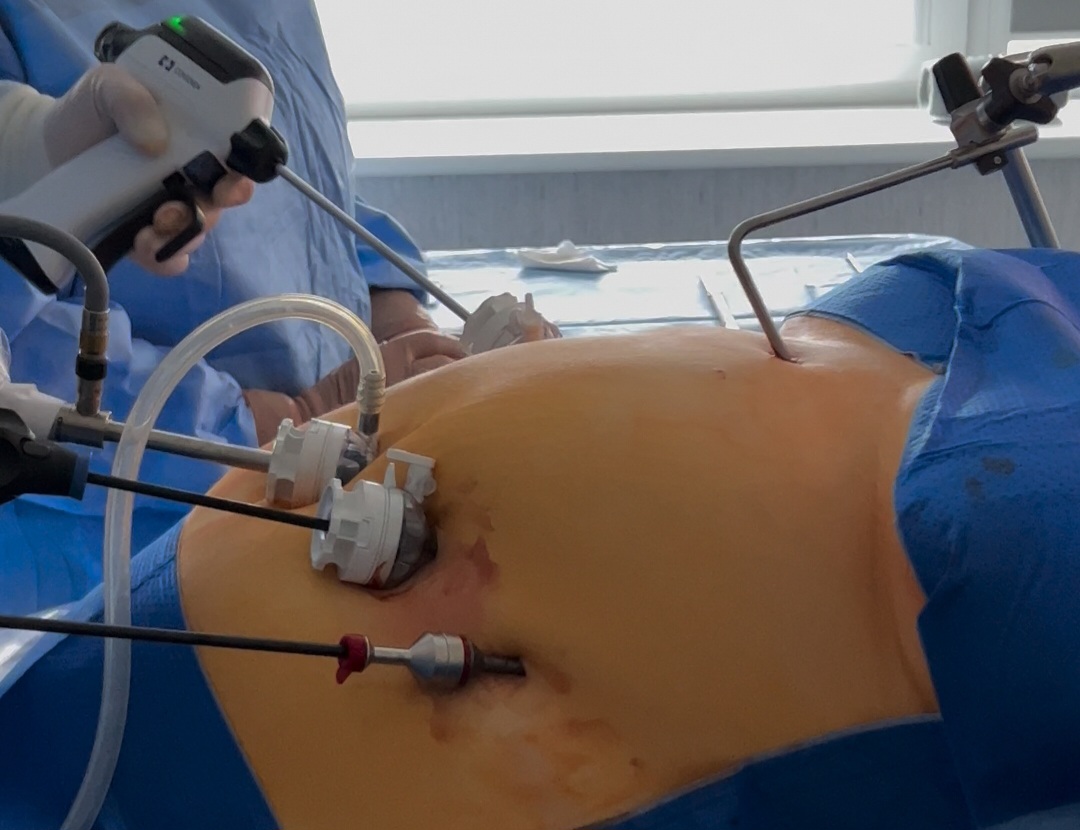
If obesity is threatening your health and life, you are not alone. According to the National Institute of Health, it has steadily increased among the Europe population the past 20 years. Today it is a common problem among people. Although – it can be solved. And a better, healthier version of you is one step away. You ask how? Gastric bypass surgery is your ticket to the new you.
According to NEWMAN Bariatric Clinic surgeon Antanas Mickevičius, when traditional methods such as diet and physical activity doesn‘t work gastric bypass surgery can be a viable option.
What is Gastric Bypass?
Gastric Bypass is an inpatient procedure that typically takes 1-2 hours. It is a procedure which considered to be the gold standard of weight loss operations. This is due to continuous and sustained weight loss results over a period of time, high probability of resolution of obesity-related diseases and low risk of surgical complications. The procedure is carried out in two steps. Firstly, a small stomach pouch, approximately one ounce or 30 ml, is created by dividing the top of the stomach from the rest of it. Secondly, the first portion of the small intestine is divided, and the bottom end of the divided small intestine is brought up and connected to the newly created small stomach pouch.
The procedure is finished by connecting the top part of the divided small intestine to the small intestine further down, so that the stomach acids and digestive enzymes from the bypassed stomach and first part of the small intestine will eventually mix with the food. The main difference of gastric bypass surgery compared with sleeve gastrectomy is the shortening of the food’s path in the digestive system, achieving lower calories absorbtion level.
Why this type of surgery is effective?
Overweight and obesity raises risks of significant health problems including type 2 diabetes, high blood pressure, hearth disease, stroke, fatty liver, pregnancy problems and even some types of cancer. Bariatric surgery has become one of the most effective treatment options. Gastric bypass surgery, also known as Roux-en-Y Gastric Bypass, is one of the most commonly performed weight loss procedures and has a long track record of success. So is it worth it?
First, the newly created small stomach pouch can digest only significantly smaller meals. As a result, a patient feels full after eating a small quantity of food, and thus consumes less calories. Secondly, because there is less digestion of food by the smaller stomach pouch and bypassed part of the small bowel, smaller absorption of calories and nutrients will occur, to some extent. Additionally, rerouting of the food stream leads to changes in gut hormones that promote satiety and suppress hunger.
Am I a good candidate for Gastric Bypass surgery?
All forms of weight loss surgery can be life changing procedures. Although a gastric bypass can be helpful in reducing your risks of developing a weight related health problems, it could also result in some complications and risks. Some people are more suited to this type of surgery than others. You are considered to be a good candidate for this surgery if your BMI is over 40. You are also a good candidate for surgery if you have a lower BMI (30 – 40) but are also suffering from another health problem relating to your weight.
How to prepare for the surgery?
Being prepared for the surgery will enable you to be as relaxed as possible before it and with plans in place you will be able to focus on the vital rest required to start your recovery. What needs to be done?
- To achieve your target weight you need to make a lifelong commitment and make major changes to your diet and lifestyle. You need to be emotionally ready.
- Tell your bariatric surgeon about any medications you are taking or plan to take throughout recovery. Also make sure you have all the medications you will require after surgery.
- Try to lose 5 to 10% of your excess body weight before your weight loss surgery. Research suggests that this may result in a shorter hospital stay and more rapid postoperative weight loss.
- Start a healthy lifestyle in the weeks leading up to your surgery so that you have chance to get used to new routines and a different way of life.
- Practice new eating habits such as eating slowly. Don’t drink at the same time as eating as this can overfill your pouch.
- Mentally prepare yourself and start to analyse your eating behaviour and any triggers for comfort-eating or over-eating, such as particular situations, moods, times.
- Prior to surgery you will be asked to follow fasting instructions whereby you won’t be able to eat or drink. It’s important to follow your surgeon’s advice.
- The night before your procedure it’s advisable to have a shower or bath as this might be difficult for a few days after your surgery.
- Make arrangements for someone to drive you to and from your procedure. Ask a friend or relative to stay with you for at least the first 24 hours after your operation. You may want to make sure you have someone to help you out at home for the first couple of weeks after surgery.
Hoowever, it is always vital to research the surgery thoroughly and to have realistic expectations of what life will be like following the procedure. As long as you know what to expect and what will be expected of you, you will ready to make this step.
If you need more info – don‘t hesitate and ask. We are willing to help you. Any questions are welcomed and could be answered. Our contacts here: https://newmanbariatric.eu/contact/
Are You ready for the NewYou?
Weight loss surgery in Lithuania
)







